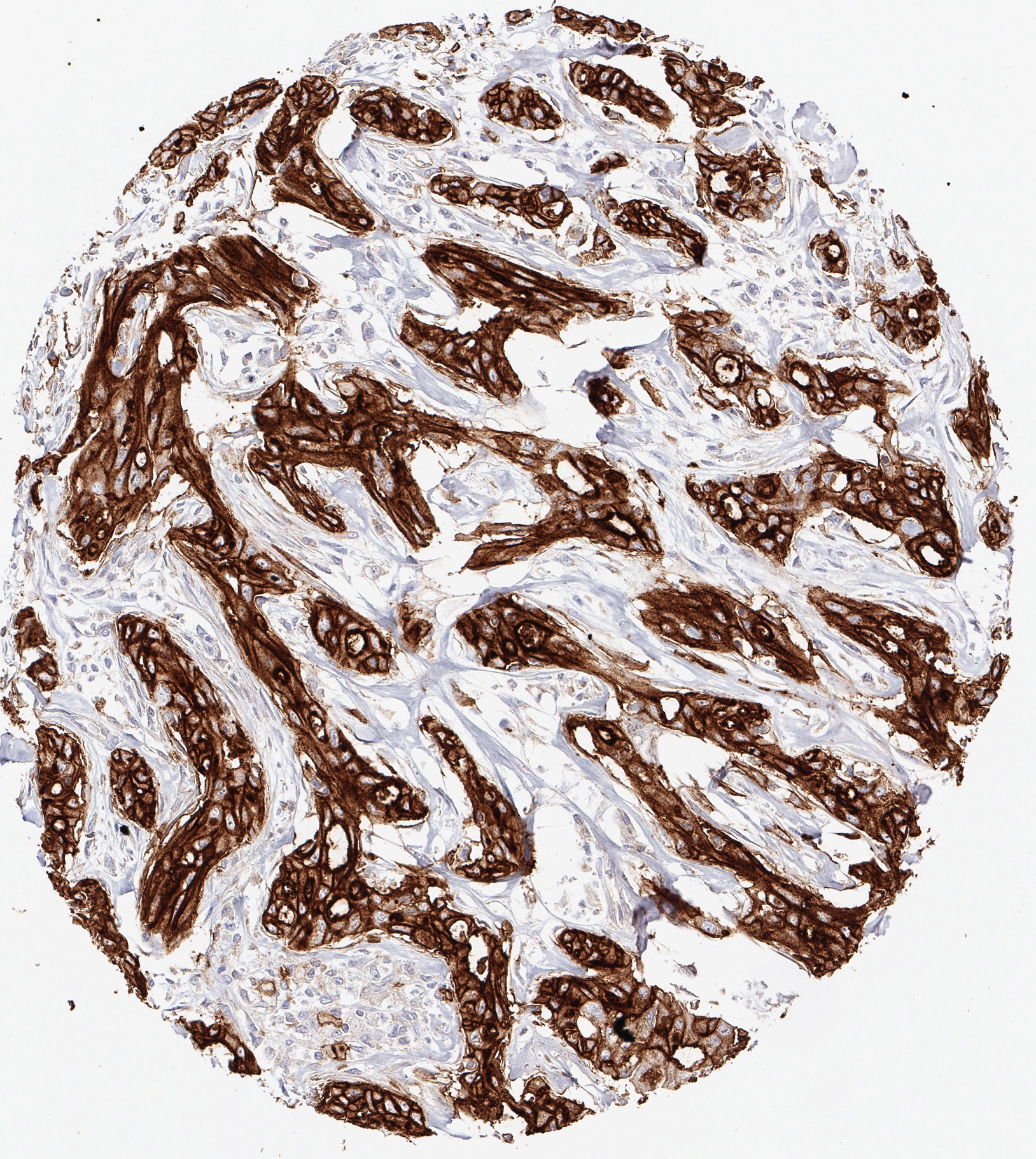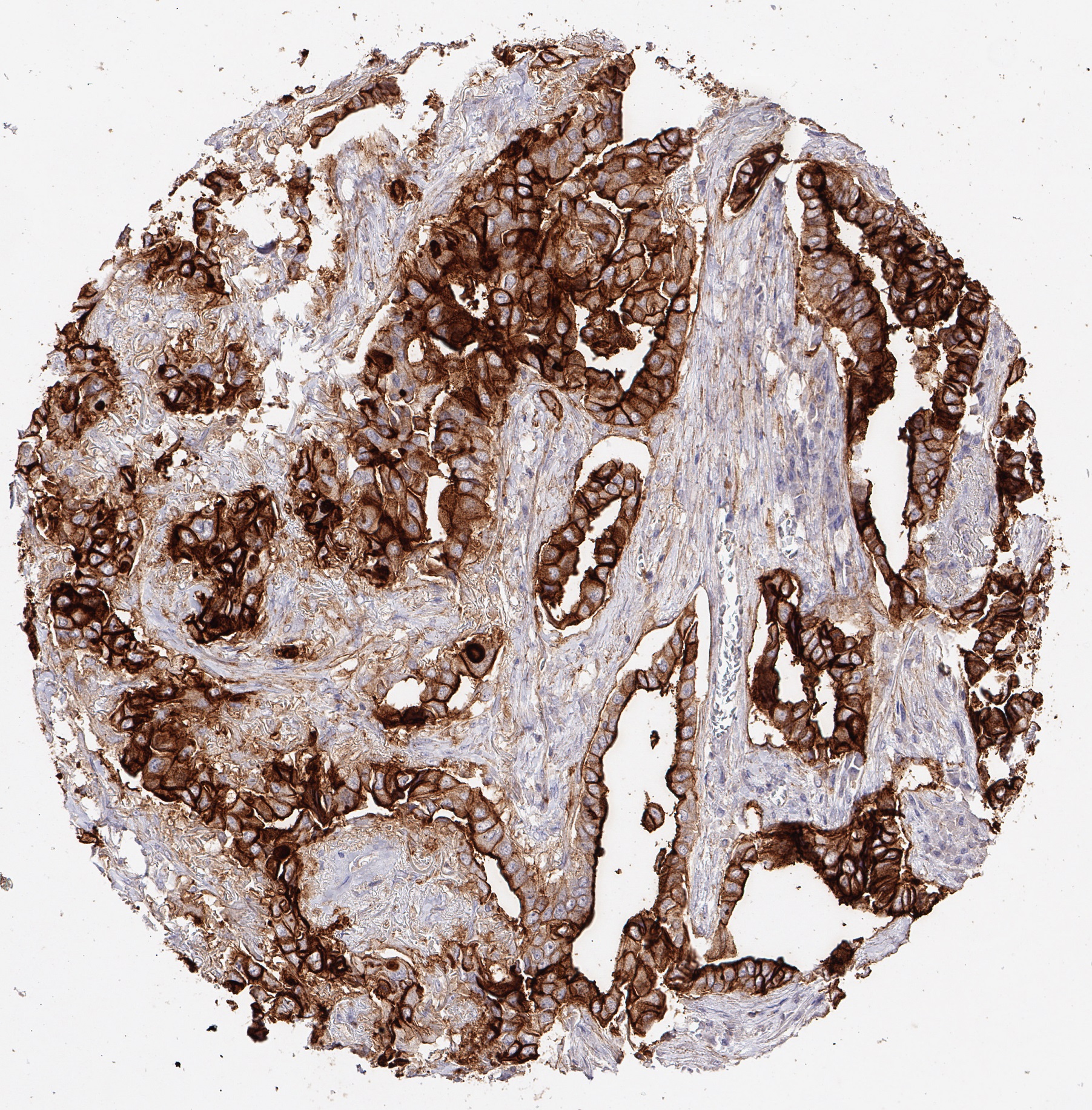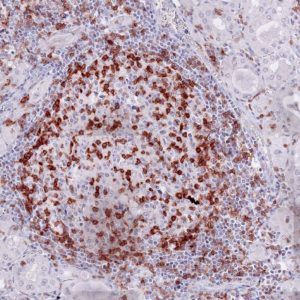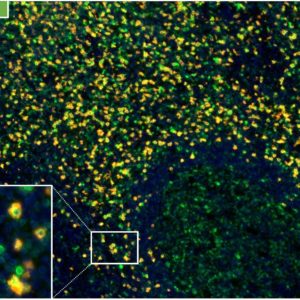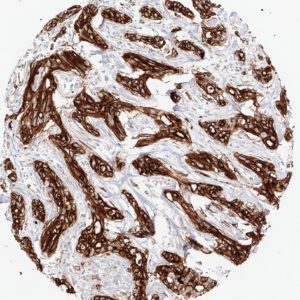Beschreibung
| Prod.Nr. | DIA-KK3 |
| Spezifität | CD73 |
| Speziesreaktivität | Human |
| Speziesreaktivität | Mouse |
| Isotyp | IgG2b/κ |
| Klon | CD73 |
| Anwendung |
Immunohistochemistry (IHC),
Formalin-fixed Paraffin-embedded sections (FFPE)
Western Blot
|
| Konjugation | unconjugated |
| Verdünnung | IHC 1:100-1:200 |
| Format |
Lyophilisate, 20µg
Antibody purified (from culture supernatant)
|
| Anzahl | 500µl |
| Positive control | Tonsil |
| Format | PBS pH 7.4, 2%BSA, 0.05%NaN3 |
| Anwendungshinweis | Research Use Only |
| Hersteller | ONCOdianova |

